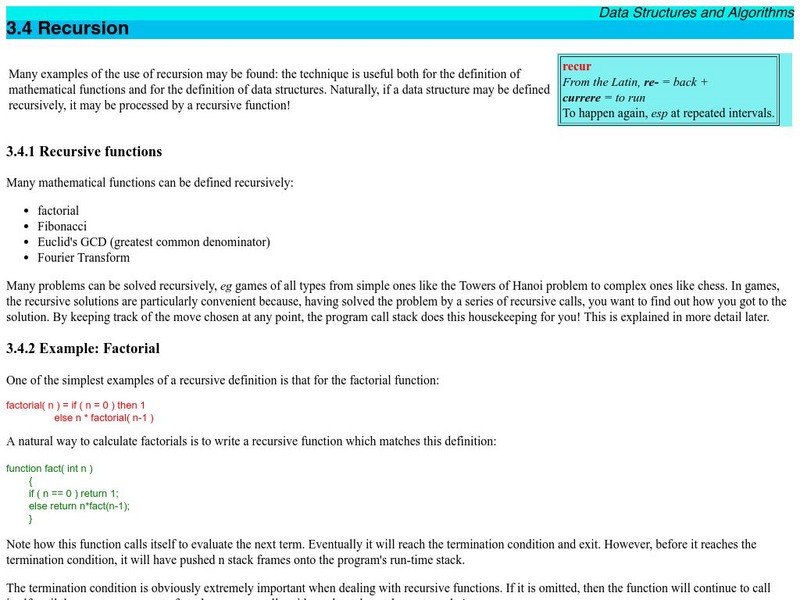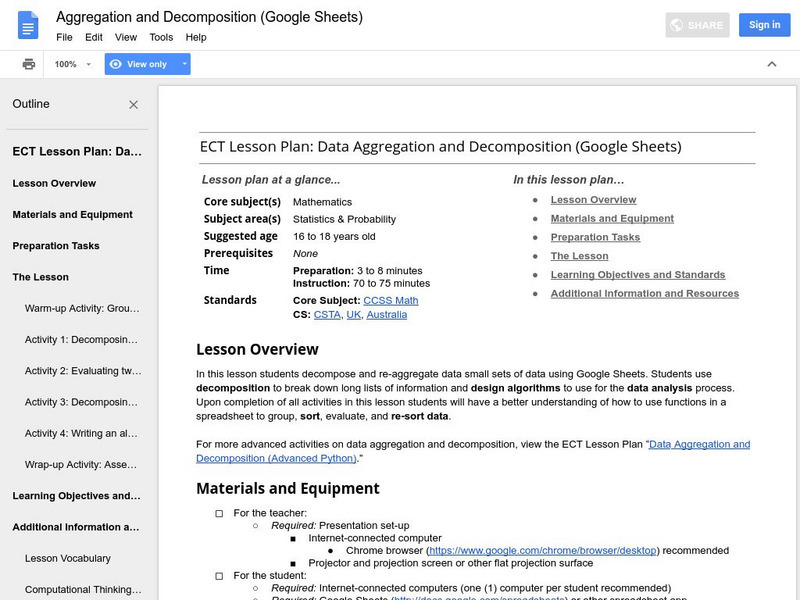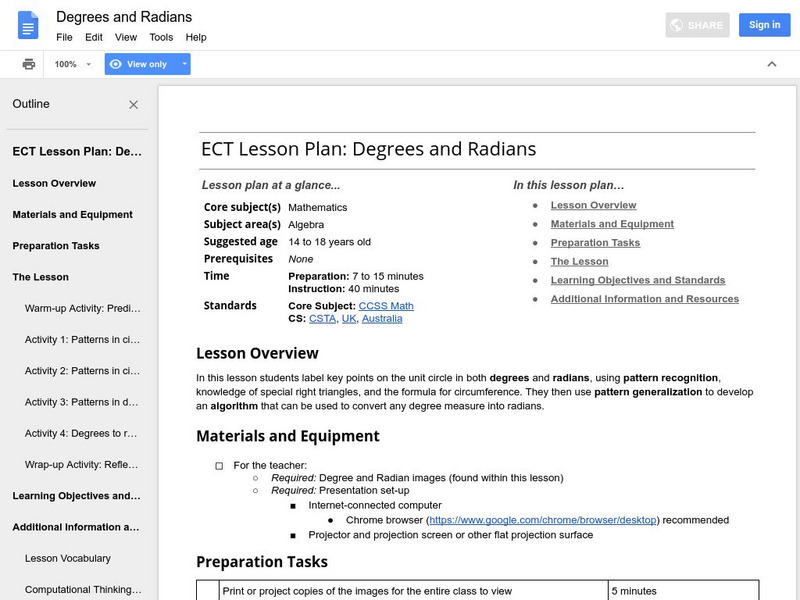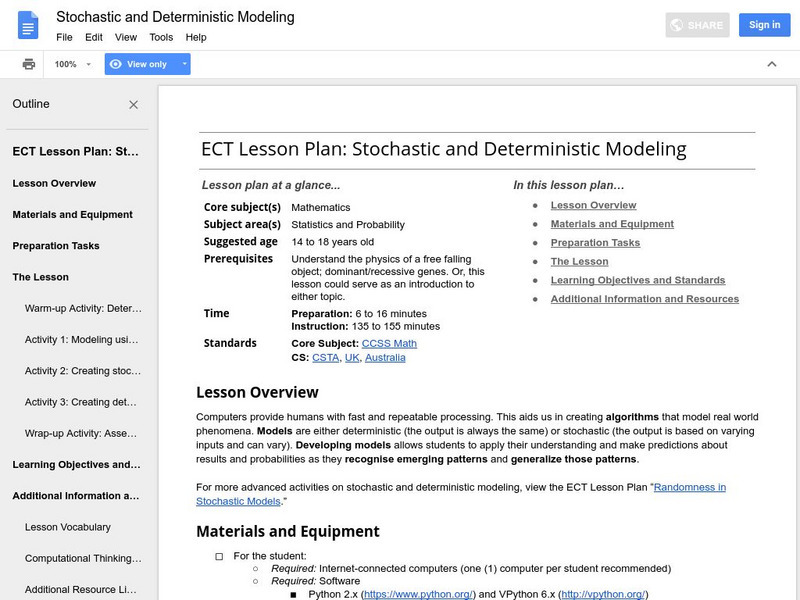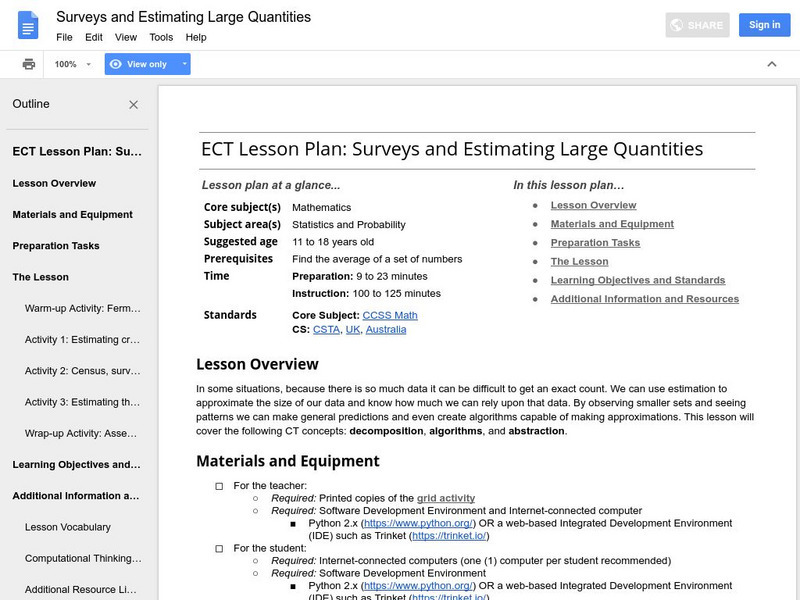Hi, what do you want to do?
Khan Academy
Khan Academy: Categorizing Run Time Efficiency
Understanding the run efficiency time of algorithms and why timing is important.
Khan Academy
Khan Academy: Representing Graphs
There are several ways to represent graphs, each with its advantages and disadvantages. Some situations, or algorithms that we want to run with graphs as input, call for one representation, and others call for a different representation....
Khan Academy
Khan Academy: Undecidable Problems
Problems a computer can never solve are called "undecidable problems". No algorithm exist that can answer the problem on all inputs.
Khan Academy
Khan Academy: Implementing Binary Search of an Array
A description of algorithms in pseudocode for binaray searches.
Khan Academy
Khan Academy: Functions in Asymptotic Notation
A discussion of asymptotic notation in relation to the rate of growth of an algorithm's running time.
Khan Academy
Khan Academy: Linear Time Merging
The linear-time merge function of an algorithm is illustrated.
Khan Academy
Khan Academy: Insertion Sort Pseudocode
An explanation of insertion sort into an algorithm.
Wikimedia
Wikipedia: Sequential Search
Provides a brief definition of a sequential search in the context of computer science. A short example is also provided.
Science Buddies
Science Buddies: Artificial Intelligence Teaching a Computer to Play Tic Tac Toe
This is a more challenging JavaScript project. You will have to figure out a way to translate game strategy into a computer algorithm. Directions will show you how to create a working Tic-Tac-Toe board on a webpage. Just by showing the...
Other
Interactive Data Structure Visualizations: Binary Tree Traversals
A great visualization / animation tool that illustrates the different traversal algorithms used with binary trees.
University of Auckland School of Computer Science
Morris: Recursion
A description of the algorithm technique known as recursion.
University of Auckland School of Computer Science
Morris: Sorting
A description of simple sorting algorithms such as insertion and bubble sorts.
Google
Google for Education: Data Aggregation and Decomposition (Excel)
By using Microsoft Excel, students collect, decompose, and re-aggregate class data. Students use computational thinking skills by decomposing long lists of information and writing basic algorithms to help analyze data.
Google
Google for Education: Degrees and Radians
Young scholars label key points on the unit circle in both radians and degrees. They count their way around the circle in 30-degree increments, and then again in increments of radians. Finally, students go through a similar process for...
Google
Google for Education: Stochastic and Deterministic Modeling
Computers provide humans with fast and repeatable processing to create algorithms that model real world phenomena. Developing models allows students to apply their understanding and make predictions.
Google
Google for Education: Surveys and Estimating Large Quantities
Students use estimation to approximate the size of a large set of data. By observing smaller sets and seeing patterns they make general predictions and even create algorithms capable of making approximations.
TeachEngineering
Teach Engineering: Passing the Bug
Learners apply concepts of disease transmission to analyze infection data, either provided or created using Bluetooth-enabled Android devices. This data collection may include several cases, such as small static groups (representing...
TeachEngineering
Teach Engineering: What Makes Up a Color?
As a part of the research and revise step of the Legacy Cycle, this lesson plan provides students with information they will need later on to be able to average pixels to simulate blurring in the peripheral plane of vision. Students...
Other
Ibm: Mastering Recursive Programming
A discussion of how to write a correct recursive algorithm. Numerous examples are given in several different programming languages.
Other
Adb: How Remote Sensing Technology Improves Efficiency of Irrigation Systems
With the increase of free satellite data combined with scientific algorithms and cloud computing capacity, developing affordable operational monitoring systems for irrigation management in Asia is now feasible. The use of virtual field...
Cornell University
Cornell University: Counting Solution Clusters in Graph Coloring Problems
This paper proposes one of the first scalable methods for estimating the number of clusters of solutions of graph coloring problems using a belief propagation like algorithm.
Shodor Education Foundation
Shodor Interactivate: Solving Equations
Introduction to various algorithms for solving single-variable, linear equations.
Khan Academy
Khan Academy: Challenge: Recursive Powers
Challenge problems practicing recursive powers.
Other popular searches
- Numerical Algorithms
- Division Algorithm
- Multiplication Algorithms
- Addition With Algorithms
- Addition Algorithms
- Subtraction Algorithms
- Standard Algorithm
- Math With Algorithms
- Partial Products Algorithm
- Partial Sums Algorithm
- Adding Integers Algorithm
- Dividing Algorithm
















